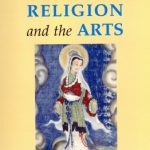 A Special Issue of Religion and the Arts (Web); Guest Editor: Frederick S. Roden
A Special Issue of Religion and the Arts (Web); Guest Editor: Frederick S. Roden
Proposals by: 01.02.2020
Religion and the Arts solicits essays for a special issue on the intersectionality of fashion and holiness. In the wake of The Metropolitan Museum of Art’s 2018 exhibition concerning couture and Catholicism, the editors aim to query how material objects and decorative arts of the body do more than reveal and conceal unseen meaning.
Fashion defines collective and individual corporeality in shaping the spiritual and embodied self. Resisting a ’sacred versus profane‘ dichotomy, the editors plan to foster discussion on multivalent categories of identity a wearer/bearer may inhabit, residing with or displaced from religion and objectification.
The editors seek articles and reviews comparative and particular; on western and nonwestern topics; and engaging various subjects such as gender, sexuality, cosmopolitanism/provincialism, traditionalism/innovation, ritual, and embodiment. The editors welcome studies grounded in specific moments as well as the transhistorical. ‚Fashion‘ should be broadly conceived to include items used for religious practice or life-cycle events; decorative objects definitive of creed or belonging (including jewelry); and materials worn in public, ceremonial performances of liturgy/worship as well as private, vernacular markers of devotion.
Essays should be 5000-10,000 words in length and must be submitted by February 1, 2020 for consideration. Please direct queries to frederick.roden@uconn.edu. Religion and the Artsfollows MLA style. Authors should send any image files in color or black/white as 300 dpi for photography/600 for linework at the size the images are to be reproduced. Authors must arrange for world rights and are responsible for the costs (the print run is 250). For further information on Religion and the Arts, edited by James Najarian, consult the website.
Source: qstudy-l@mailman.rice.edu
